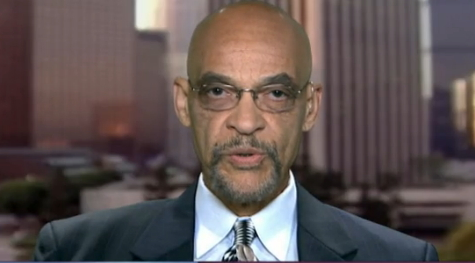When then accused child pornographer and sexual panderer, R. Kelly, went on trial in Chicago in 2008, he had three albums in the can ready for release. It took the jury only a few hours to acquit him of all charges. But even before his acquittal it was a surefire bet that the albums would fly out the can fast and even faster off the store racks.
Now fast forward a decade plus later, Kelly is back on the hotseat again. This time with the release of the multi-part docuseries, “Surviving R. Kelly.” This time Kelly is royally raked over the coals for his alleged underage sexual predatory mania, and various and assorted child and adulthood neuroses, psychoses, supposedly all aided and abetted by a fawning public and for far too many years by a legal system, star struck by his fame and money, that looked the other way.
But there’s no reason to think this this hit piece series on him will unravel his neat little celebrity fame and fortune empire. This means little to his legions of devoted fans.
Kelly and a handful of other influential R&B singers and rappers who are rich and famous beyond their wildest fantasies and who brand themselves with a criminal, thuggish image is still very much in commercial vogue. They exult the bad actor life style, thumb their nose at the establishment, and reinforce the sexually rapacious cardboard image of young black males.
Kelly, and the others, know that the record industry can and will deftly parlay their sexual outlandishness and defiance into millions in record sales. Kelly brashly seized on the commercially prurient relationship he has with the record companies in one of his hit albums, “The Champ,” “Point fingers, throw stones, hate me. I’m clever enough to know that the industry needs me.”
It does. He owns a mansion and property in Chicago and Florida, was once spoken of in the same breath as Oprah and Michael Jordan among Chicago’s wealthiest black elite.
However, in the process, young black artists such as Kelly rekindle the vilest of racial and sexual stereotypes about young black males. Their artistic degradation has had especially dangerous consequences for black women. In Kelly’s case the victims of his sexual vandalism, as witnessed by settlements of other lawsuits against him for having sex with underage teens, were black women. And his sexually odious singles, “Feelin on Yo Booty,” “Bump and Grind,” and “Your Body’s Callin’,” were virtual invitations to sexually trash black women.
Black women, especially young black women, have been the victims of that and much more. Homicide now ranks as one of the leading causes of deaths of young black females. A black woman is far more likely to be raped than a white woman, and slightly more likely to be the victim of domestic violence. Their assailants are not white racist cops or Klan nightriders but black males, and if they are a poor black woman, and their alleged assailant happens to be a fawned over rap star, justice will be slow forthcoming, if at all.
The Kelly case is a glaring example of the oft times laxity in how authorities treat crimes against black women. It took police and prosecutors years to charge him for the lewd alleged sex video with an underage teen, and six more years for him to get to trial. No charges were ever filed against him in the other cases that he subsequently settled, even though sex with a minor is a felony.
Some blacks make things even worse by dredging up a litany of excuses, such as poverty, broken homes, and abuse, to excuse the sexual abuse and the violence by top black male artists. These explanations for the misdeeds of rappers and singers are phony and self-serving.
When men such as Kelly commit, or are charged with sexual assaults, they leave a long trail of victims, cast shame and disgrace on themselves and, worst of all, reinforce the notion that young black males are indeed menaces to society.
Kelly has yet to be convicted of any crime. Some of his alleged victims and their relatives have rallied to his defense and claimed the series on him is a tissue of fabrications and lies. This is exactly what he has always vehemently claimed. Lies or not, again, his adoring fans that slavishly elevate him to a demigod perch and put king’s ransom wealth in his bank account will not desert him in droves.
Informal polls have shown that many listeners will continue to buy his records, and some blacks have even trotted out the tired claim that he’s another prominent black man victimized by whites. Kelly’s ill-gained notoriety jingled cash registers loud before, during and after his trial a decade ago. “Surviving R. Kelly” will insure that it does the same again.
Earl Ofari Hutchinson is an author and political analyst. He is the author of Fighting Back! A Citizens Guide to Combatting Racist Acts (Middle Passage Press) He is a weekly co-host of the Al Sharpton Show on Radio One. He is the host of the weekly Hutchinson Report on KPFK 90.7 FM Los Angeles and the Pacifica Network.


This has been the truth for years!
Evil runs rampant And is glorified.
Robert Fairchild Jr
Newfoundationproductions.com
This is a “PRIME EXAMPLE” of why AMERICA is one SICK ASS COUNTRY. BLACK FOLKS fall for ANYTHING. THEY forgive the Most OUTRAGEOUS NONSENSE. SO DAMNNNNNN SADDDDDD.